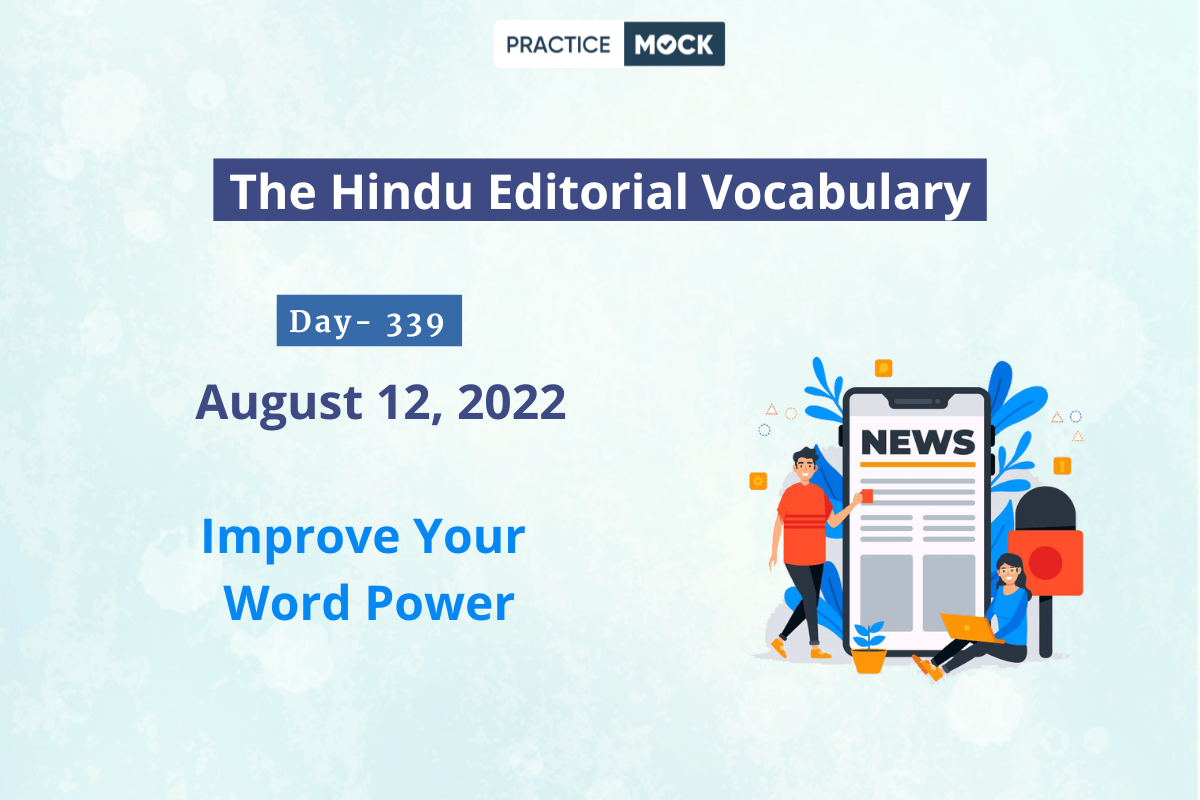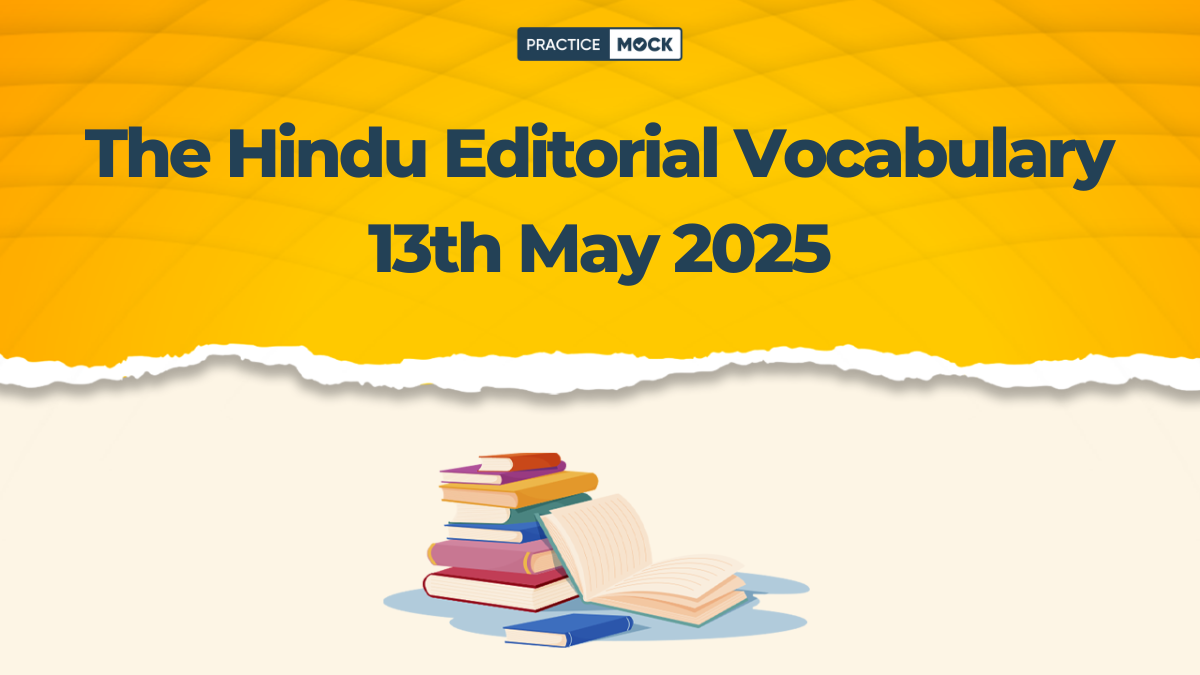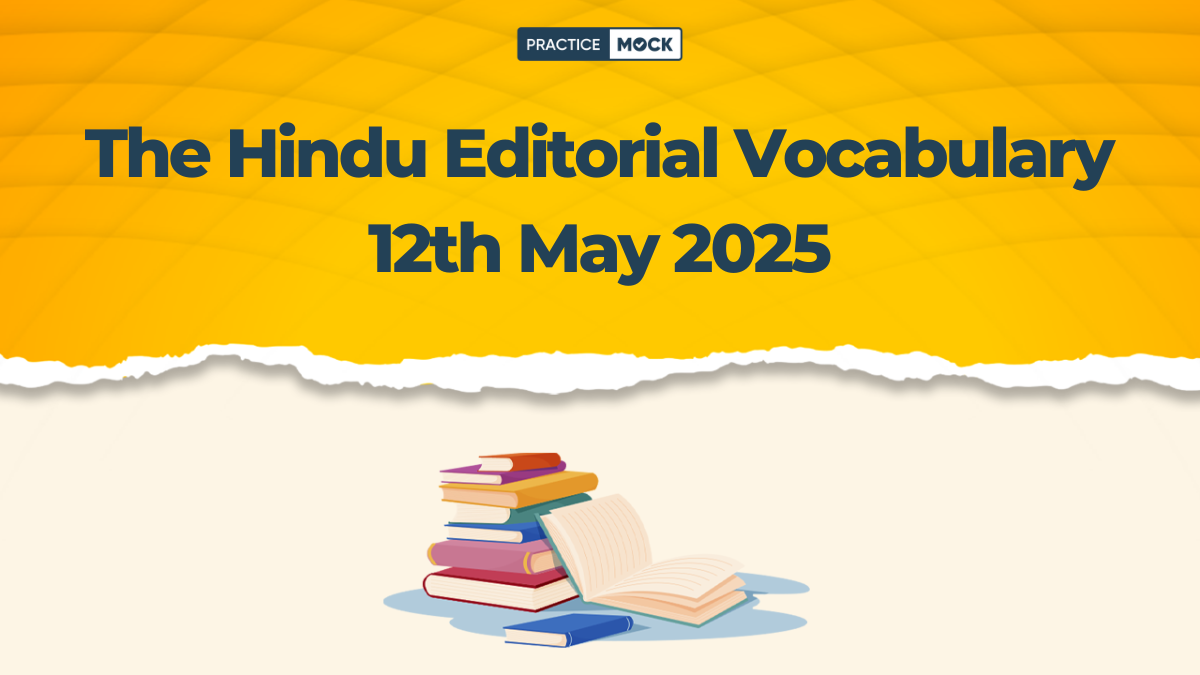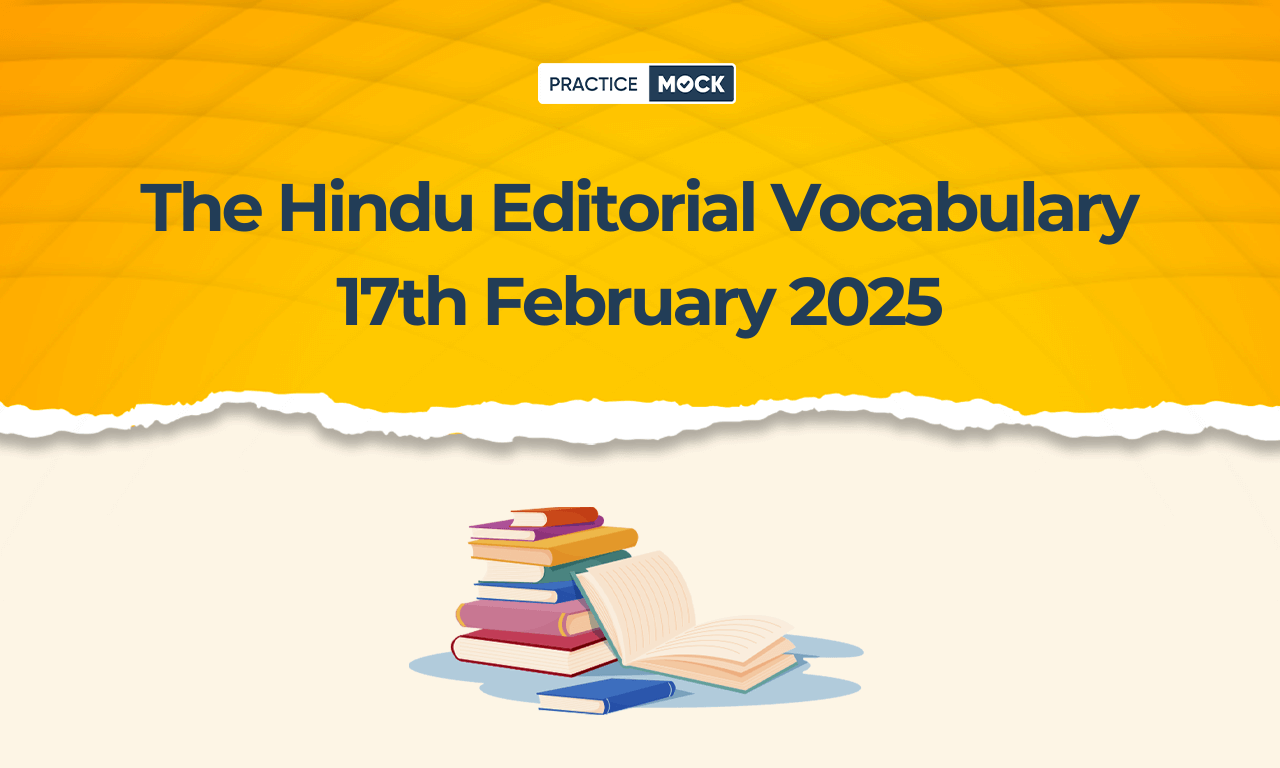

| Difficult Word/ Phrase | Contextual Sense |
| Tenability | The quality of being plausible or acceptable to a reasonable person |
| Arraign | Accuse of a wrong or an inadequacy |
| Overthrow | Cause the downfall of |
| Octogenarian | Being from 80 to 89 years old |
| Albeit | Even though |
| Frame | To outline |
| Interim | Serving during an intermediate interval of time |
| Allegation | (law) a formal accusation against somebody (often in a court of law) |
| Prima facie | At first sight |
| Onerous | (of a task) requiring hard or challenging work |
| Trial | judicial examination |
| Off-shoot | A natural consequence of development |
| Commemorative | Intended as a ceremony to honour the memory of someone or something |
| Rope in | lure |
| Spyware | Computer software that obtains information from a user’s computer without the user’s knowledge or consent |
| Implicate | Bring into intimate and incriminating connection |
| Fabricate | Concoct something artificial or untrue |
| Countenance | give permission |
| Incarceration | The state of being imprisoned |
Just in case: On courts and the tenability (The quality of being plausible or acceptable to a reasonable person) of the Bhima Koregaon case
It is time the tenability of the Bhima Koregaon case was examined by courts
The grant of bail to the 82-year-old Telugu poet and activist, Varavara Rao, on medical grounds is a welcome relief to at least one of those arraigned (Accuse of a wrong or an inadequacy) in the controversial Bhima-Koregaon case under the Unlawful Activities (Prevention) Act. The Supreme Court has rightly ignored the arguments on behalf of the National Investigation Agency (NIA) that age is not a factor in considering grant of bail for one involved in an attempt to overthrow (Cause the downfall of) the democratically elected government and that his medical condition is not serious enough. It cannot be forgotten that tribal rights activist Father Stan Swamy, another octogenarian (Being from 80 to 89 years old) who was arrested in the same case, died of poor health even while his petition for bail on health grounds was being heard. In Mr. Rao’s case, he was taken into custody in August 2018 and granted interim bail for six months on health grounds in February 2021. The Bombay High Court had set a date for him to return to custody after treatment, but it has been extended from time to time. Having regard to his age, the Supreme Court has now removed the time limit and given him regular bail, albeit (even though) with the conditions that he stay in Mumbai and not to get in touch with witnesses. The Court has also taken note of the fact that the charge sheet has been filed in the case, but the trial court is yet to frame (to outline) charges. Further, there is no claim that he misused the interim (Serving during an intermediate interval of time) bail in any way.
The options of an accused to get bail under UAPA are largely limited to health grounds, because bail on merits is nearly impossible to get. Under this law, the accused have to demonstrate that the allegations ((law) a formal accusation against somebody (often in a court of law)) made against them in the police version is, prima facie (At first sight), not true. This onerous ((of a task) requiring hard or challenging work) condition is not easy to fulfil, especially after the Supreme Court in NIA vs Zahoor Ahmad Shah Wataliruled that while considering bail, the court should not go deep into the material against a person and must decide whether the prosecution case was true “based on the broad probabilities” of the case. However, the Supreme Court has indeed got around this limitation by treating any long delay in holding the trial (judicial examination) and violation of fundamental rights as grounds to grant bail even in UAPA cases. The Bhima Koregaon case is an off-shoot (A natural consequence of development) of disturbances that took place during a commemorative (Intended as a ceremony to honour the memory of someone or something) event on December 31, 2017, in Pune. It was used to rope in (lure) lawyers and activists and build a case of an alleged Maoist plot to overthrow the government. There are credible reports that electronic evidence in the case could have been planted using spyware (Computer software that obtains information from a user’s computer without the user’s knowledge or consent) to implicate (Bring into intimate and incriminating connection) the accused. It is time the courts examined the core question whether the case itself is tenable or one fabricated (Concoct something artificial or untrue) to corner some activists. The judiciary should not countenance (give permission) the prolonged incarceration (The state of being imprisoned) of anyone in a case of doubtful validity.
Want to improve your vocabulary further? Download the Lists of Word-Meanings of Previous Months here.
Recent Posts
IBPS RRB Notification 2025 in June, PO & Clerk Exam Date Out, Check All Upcoming Events
The IBPS RRB Notification 2025 is expected to be released in June 2025. Candidates can…
IBPS RRB PO Prelims Mock Test Free 2025, Attempt Now!
Here we are providing the IBPS RRB PO Prelims Mock Test Free 2025. Candidates can…
UPSC Admit Card 2025 Out for Prelims, Get Direct Link
The UPSC has released the UPSC Admit Card 2025 for Prelims exam. In this blog,…
How to Crack RBI Grade B in First Attempt?
Aspirants preparing for RBI Grade B exam. Know the 10 tips to crack RBI 2025…
IBPS PO vs RRB PO, Which Exam is Easier to Crack?
IBPS PO or RRB PO? Compare difficulty, pattern, and job roles to choose the best…
How to Master Government Schemes for RBI Grade B Exam
Master government schemes effectively for the RBI Grade B exam with comprlete strategies, Important resources…


